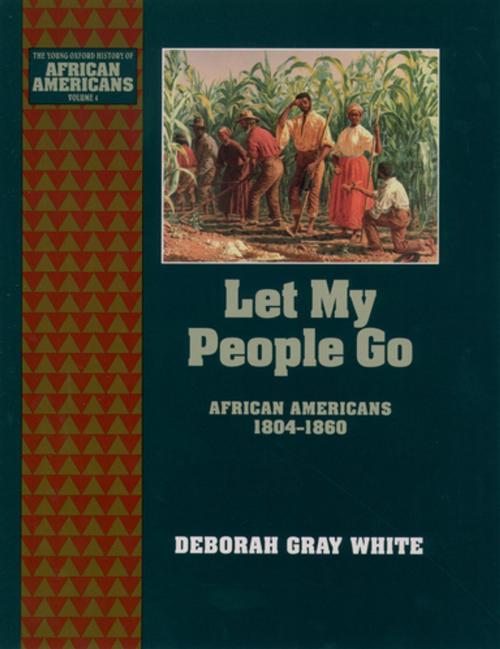Let My People Go
African Americans 1804-1860
Nonfiction, Social & Cultural Studies, Social Science, Cultural Studies, Minority Studies, History, Military| Author: | Deborah Gray White | ISBN: | 9780190282240 |
| Publisher: | Oxford University Press | Publication: | September 12, 1996 |
| Imprint: | Oxford University Press | Language: | English |
| Author: | Deborah Gray White |
| ISBN: | 9780190282240 |
| Publisher: | Oxford University Press |
| Publication: | September 12, 1996 |
| Imprint: | Oxford University Press |
| Language: | English |
In 1800, black voices began to rise against slavery. People like Gabriel Prosser and Nat Turner, attempted to launch slave rebellions against the system. Others, such as Maria Stewart and Frederick Douglass wrote books, pamphlets, and speeches calling for the abolition of slavery in the "land of the free." The voices of abolitionists, both black and white, helped end slavery in the Northern states during the early 19th century. But Southern plantation owners were unwilling to yield easily. The industrial revolution made the market for cotton better than ever. Inventor Eli Whitney's cotton gin could easily remove the seeds from cotton bolls a slow and tedious chore slaves had to do by hand and plantation owners were able to grow even more cotton with fewer hands. They were not about to give up their slaves without a fight. So--African Americans struggled to be free and remain free as slaveholders fought to keep the system alive and profitable. Let My People Go explores what slavery was like for men, women, and children in white homes and plantations, but it also shows how slaves created communities under bondage, how they fought back, and how they contributed to the system's decline. Even in rare "free" communities, the central goal of free African Americans, beyond their very survival as a people, was to fight for the complete abolition of slavery. This sense of brotherhood, of community, speeded slavery's demise and still guides African American history today. Let My People Go is a testament to the commitment and courage of those early communities.
In 1800, black voices began to rise against slavery. People like Gabriel Prosser and Nat Turner, attempted to launch slave rebellions against the system. Others, such as Maria Stewart and Frederick Douglass wrote books, pamphlets, and speeches calling for the abolition of slavery in the "land of the free." The voices of abolitionists, both black and white, helped end slavery in the Northern states during the early 19th century. But Southern plantation owners were unwilling to yield easily. The industrial revolution made the market for cotton better than ever. Inventor Eli Whitney's cotton gin could easily remove the seeds from cotton bolls a slow and tedious chore slaves had to do by hand and plantation owners were able to grow even more cotton with fewer hands. They were not about to give up their slaves without a fight. So--African Americans struggled to be free and remain free as slaveholders fought to keep the system alive and profitable. Let My People Go explores what slavery was like for men, women, and children in white homes and plantations, but it also shows how slaves created communities under bondage, how they fought back, and how they contributed to the system's decline. Even in rare "free" communities, the central goal of free African Americans, beyond their very survival as a people, was to fight for the complete abolition of slavery. This sense of brotherhood, of community, speeded slavery's demise and still guides African American history today. Let My People Go is a testament to the commitment and courage of those early communities.















